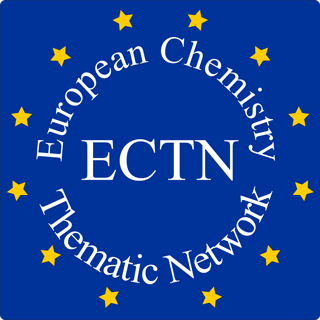Introduction
The Bologna process requires universities in Europe to develop easily readable, comparable and compatible degrees. As part of the work in the EU project “Tuning Educational Structures in Europe“, the European Chemistry Thematic Network ECTN developed a framework for the three cycles qualification in chemistry, the Chemistry Eurobachelor®, the Chemistry Euromaster® and the Chemistry Doctorate Eurolabel®
The second cycle was extended with the Chemical Technology Euromaster®. The qualifications can be obtained in accreditation processes as regular or renewal ones, and recently there is new possibility to apply for Eurolabel® as add-on.
The framework was endorsed by the European Chemical Society EuChemS (formerly European Association for Chemical and Molecular Sciences EuCheMS). Several accreditation agencies included the Chemistry Eurobachelor®, the Chemistry Euromaster®and the Chemistry Doctorate Eurolabel® into their portfolio.
Taking part in a non-mandatory accreditation process is feasible, if the benefits are larger than the work and budget investments. The first accreditations were performed just at the beginning of the Bologna process, when the institutions had rather indefinite ideas how to develop BSc and MSc programmes. The ECTN framework provided a good starting point on the subject knowledge, laboratory competencies, safety components, quality control, ethics and modern teaching methods to be included into the programs. The label documents detailed a set of international requirements to ensure a reasonable quality level. The accredited programs are not unified in their content, the framework is flexible and open, so that it does not force universities to work according to a fixed pattern. The focus is always on the outcomes, since these features are the most important for enhanced mobility during the training and for employment.
The main benefit for the institutes is that the students finishing the program satisfy a set of European requirements, they have a right of access (not admission) for the next cycle in a university of the framework and they fulfil the standards which fit the graduates for employment as professional chemists in chemical and related industries or in public service. For institutions at the border of Europe or at other continents the accreditation helps the integration into the European Higher Education Area.
The assessment means an international quality control and it induces permanent internal quality control. The label improves both the national (e.g., at budgetary aspects) and the international respect of the programs. For the staff it shows clearly what kind of teaching and research activities are internationally suggested and what is their responsibility in the development of programs. For the students the accreditation secures the relevancy of their subjects and enhances the mobility. The outcomes required for a successful accreditation are highly connected to the expectations of the job market and the definition of a European Chemist.
Although the labels were designed according to the Bologna Declaration Recommendation for a 180/120/90-credits degrees structure, the framework can also be applied by institutions which decide to award a 240/90/90-credits degrees structure. It may also cover degrees with a strong chemistry component such as biochemistry, biological chemistry, chemical biology and also chemical technology BSc. “Non-traditional” universities (Hogeschool, Fachhochschule, Haute École, etc.) can also make use of the framework in their chemistry or chemistry-related degrees. ECTN is on the way to elaborate a framework on chemistry teacher programs, too.
ECTN offers interested institutions the possibility of applying for a label by contacting directly ECTN or partner accreditation agencies. By direct application to ECTN the label can be awarded for a period of 5 years in the first instance, with a possibility of renewals for further 5-year or 7-year periods depending upon national legislation. The label can be obtained also by application at ECTN partner agencies, when the regular national accreditation takes place. Since 2018, institutions may apply for a Eurolabel® add-on at a reduced fee , if a national program or system accreditation took place recently by an agency, that is operating in substantial compliance with the European Standards and Guidelines (ESG) and that this agency is listed by the European Quality Assurance Register for Higher Education (www.eqar.eu) or by one of its stakeholder organizations.
ECTN association has a Label Committee which deals with the administration of the direct ECTN applications, the awarding of the labels, and keeps contact with partner agencies. Label Committee takes care on Panel of Experts whereof the Assessment Team members are chosen. The members of the Panel of Experts are selected from honoured chemists and accreditation specialists after finishing a coaching event.
— Optimized for Windows Edge —
